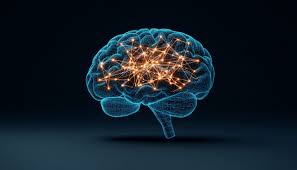In a groundbreaking advancement in neuroscience, researchers have identified a direct correlation between brain energy imbalance and the development of psychiatric disorders such as depression, bipolar disorder, and schizophrenia. This discovery offers a new perspective on mental health, potentially revolutionizing how these conditions are diagnosed and treated.
What Is Brain Energy Imbalance?
Brain energy imbalance refers to disrupted cellular processes in the brain that interfere with how neurons generate and use energy. The brain is an energy-intensive organ, requiring stable metabolic activity to support everything from mood regulation to cognitive function. When this energy balance is disrupted, it can significantly affect neural communication, leading to psychiatric symptoms.
How Energy Imbalance Affects Mental Health
New findings show that insufficient or excessive energy supply in specific brain regions may alter the behavior of neurotransmitters such as dopamine, serotonin, and glutamate. These imbalances can lead to:
- Persistent mood disorders like depression and anxiety
- Cognitive impairment and memory issues
- Behavioral abnormalities in disorders such as schizophrenia
- Reduced brain plasticity and resilience to stress
A New Frontier in Mental Health Diagnosis
Traditional approaches to diagnosing mental illness have relied heavily on behavioral symptoms. However, this new biological insight may pave the way for more precise, personalized diagnostics. By measuring metabolic patterns or brain energy signatures, clinicians may be able to detect psychiatric disorders earlier and with greater accuracy.
Implications for Future Treatment
Understanding the role of brain energy imbalance opens up potential therapeutic strategies aimed at restoring healthy energy flow in the brain. Possible interventions may include:
- Metabolic-enhancing medications
- Lifestyle changes to improve mitochondrial function
- Nutritional therapies targeting brain metabolism
- Brain stimulation techniques to restore energy equilibrium
A Shift Toward Precision Psychiatry
This research marks a shift from traditional mental health models to a biological, systems-based approach. Scientists believe that focusing on the metabolic health of the brain could help reduce stigma around mental illness and foster more effective, science-backed treatments.
Conclusion
The discovery of a link between brain energy imbalance and psychiatric disorders represents a paradigm shift in our understanding of mental health. As further studies validate these findings, they could lay the foundation for a new era in psychiatry one that treats the brain not just chemically, but energetically.



Comments (0)
No comments yet. Be the first to comment!
Leave a Comment